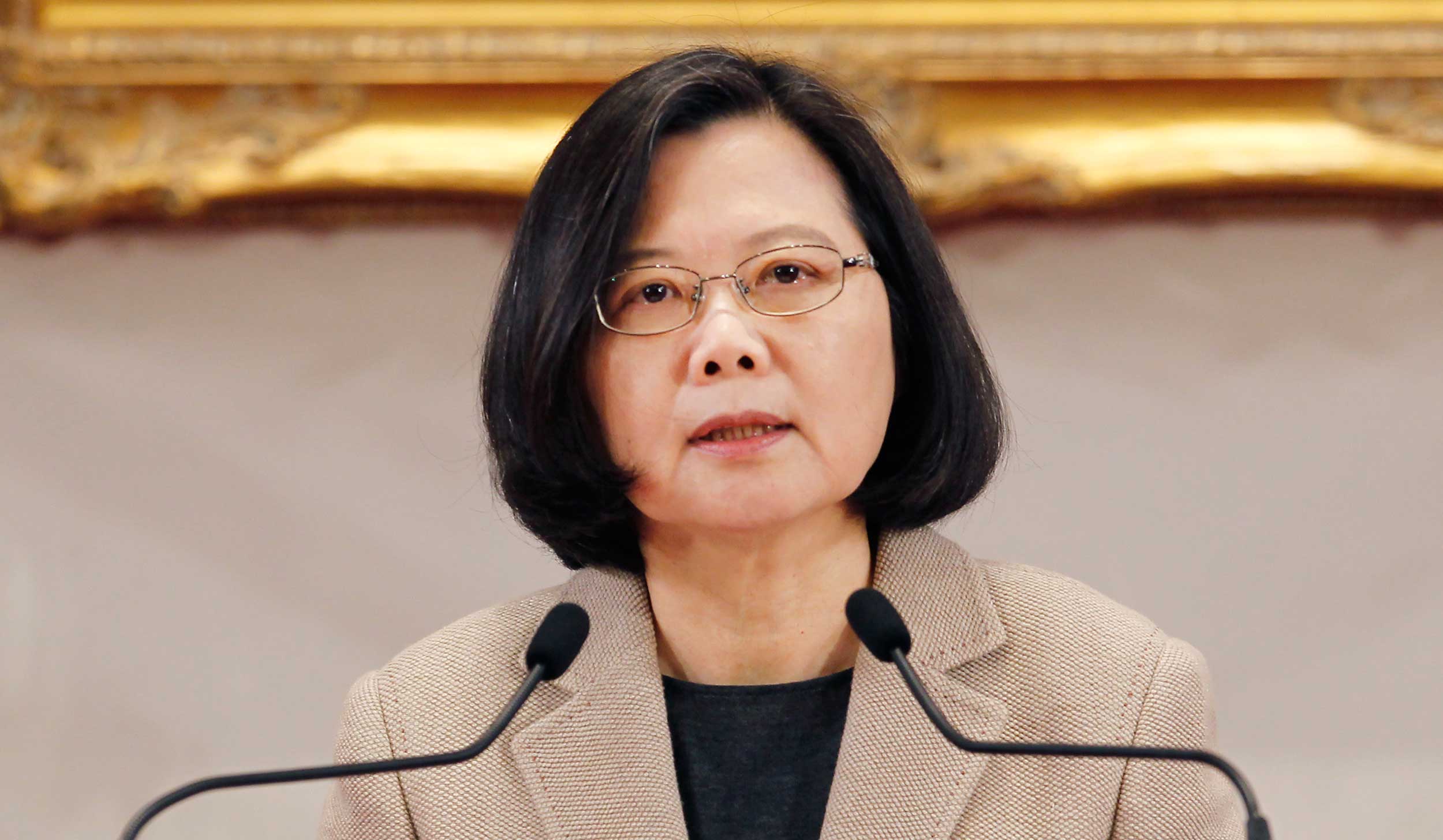President Tsai Ing-wen of Taiwan called on Saturday for domestic and international support of the island’s de facto independence, days after China’s leader, Xi Jinping, warned that unification with China was inevitable.
“It is impossible for me or, in my view, any responsible politician in Taiwan to accept President Xi Jinping’s recent remarks without betraying the trust and the will of the people of Taiwan,” Tsai said in a briefing for foreign reporters in Taipei, Taiwan’s capital.
“We hope the international community will pay attention and combine efforts to speak out on our behalf,” she said.
Xi’s speech, his first major address on Taiwan, has given Tsai a chance to position herself as the young democracy’s defender, both to the outside world and to voters who will decide next year whether she stays in office. Her party was battered in local elections in November, but since Xi’s address there has been a groundswell of support for her on Taiwan social media and even, to some degree, in publications that tend to oppose her.
Tensions between Taiwan and Beijing, which claims the self-governing island as part of Chinese territory, have emerged as one of the region’s flash points. Xi, the most powerful Chinese leader since Mao, reiterated in his speech that Beijing would use force if necessary to prevent Taiwan from seeking formal independence.
Xi has been ramping up pressure on Tsai’s administration over her refusal to accept the so-called 1992 consensus — a vague notion, accepted by Tsai’s predecessor, that says Taiwan and China are part of the same country, with each side allowed its own interpretation of what that China is.
In his speech, Xi urged Taiwan to avoid a “dead end” and accept his offer of the “one country, two systems” framework under which Hong Kong has operated since Britain returned it to Chinese rule in 1997.
But many people in Hong Kong and elsewhere — not least in Taiwan, where the situation is closely watched — believe that Hong Kong’s promised freedoms have been eroding under Xi’s rule.
“I myself expect all of Taiwan’s political parties to clearly state, ‘We reject one country, two systems,’” Tsai said on Saturday. “And there’s no need to talk about the 1992 consensus anymore, because this term has already been defined by Beijing as ‘one country, two systems.’”
Analysts said that Tsai, both on Saturday and in a speech on Wednesday responding to Xi, had taken an unusually firm, unequivocal posture, marking a shift away from the cautious ambiguity she had previously deployed, apparently in hopes of avoiding unnecessary provocations.
“There is no doubt that Tsai has changed her tone,” said Austin Wang, an assistant professor of political science at the University of Nevada, Las Vegas, who studies Taiwan. “Tsai made a huge shift from not publicly accepting the 1992 consensus to directly rejecting it.”
Taiwan’s Opposition Kuomintang party, which once ruled China, moved its government to the island in 1949, having lost the civil war to Mao’s Communists. Taiwan is still formally known as the Republic of China, the name under which the Kuomintang governed the mainland.
The Kuomintang said on Thursday that it was opposed to Taiwan independence — a phrase it takes to mean the removal of vestiges of the Republic of China in favour of a Republic of Taiwan. But even the Kuomintang, which favours closer ties with Beijing than does Tsai’s Democratic Progressive Party, said after Xi’s speech that a Hong Kong-style arrangement would not be supported by most Taiwanese.










